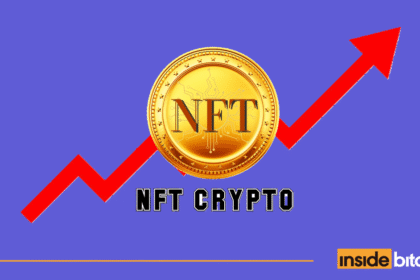$287.23M
and Glassnode published on June 11 revealed that 30.9% of all Bitcoin in circulation is held by centralized treasuries, including governments, public companies, and large investment funds.
These groups collectively control around 6.1 million BTC
As institutions build up their reserves, the data suggested that they see Bitcoin as more than just a high-risk asset. Its role is starting to resemble that of a long-term store of value, similar to gold.

Did you know?
Subscribe – We publish new crypto explainer videos every week!
Is Decentralized Anonymous Blockchain a Myth? (Explained!)

During the same period, the price of Bitcoin rose from under $1,000 to over $100,000, which supports the idea that institutional interest plays a role in its growth.
That said, nearly half of the 6.1 million BTC is stored by centralized crypto exchanges. The Bitcoins are mostly held on behalf of individual customers, not the exchanges themselves. While it contributes to the total, it does not reflect direct institutional ownership.
Within each group, such as exchange-traded funds (ETFs), public firms, and decentralized finance (DeFi) platforms, the top three holders control a very large portion of the total, ranging from 65% to 90%. In comparison, Bitcoin held by private companies is more evenly spread.
The report also highlighted government-owned Bitcoin wallets. These tend to stay inactive for long periods and do not usually follow market price changes. Most of this Bitcoin comes from law enforcement seizures in countries such as the US, UK, Germany, and China, rather than from direct market purchases.
Recently, David Sacks, a senior adviser on artificial intelligence (AI) and crypto policy at the White House, shared his thoughts on the US government’s Bitcoin reserve. What did he say? Read the full story.
Having completed a Master’s degree in Economics, Politics, and Cultures of the East Asia region, Aaron has written scientific papers analyzing the differences between Western and Collective forms of capitalism in the post-World War II era.
With close to a decade of experience in the FinTech industry, Aaron understands all of the biggest issues and struggles that crypto enthusiasts face. He’s a passionate analyst who is concerned with data-driven and fact-based content, as well as that which speaks to both Web3 natives and industry newcomers.
Aaron is the go-to person for everything and anything related to digital currencies. With a huge passion for blockchain & Web3 education, Aaron strives to transform the space as we know it, and make it more approachable to complete beginners.
Aaron has been quoted by multiple established outlets, and is a published author himself. Even during his free time, he enjoys researching the market trends, and looking for the next supernova.












